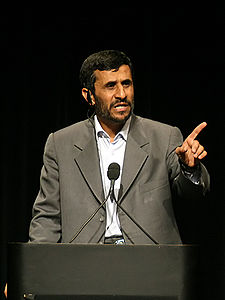
Samuele Bacchiocchi
COGwriter
There are many who on the internet mislead people with their attacks against the seventh-day Sabbath.
The following is from a highly flawed, yet search-engine popular, website on a page which attacks the writings of the late SDA scholar Samuele Bacchiocchi:
Christians never kept the Sabbath from the apostolic age (33 AD) through the time of Constantine (325AD). Source: www.bible.ca
The above page also make the following false claim:
We Speak truth in LOVE Source: www.bible.ca
Really?
The truth is that all real scholars realize that Christians kept the Sabbath for centuries. But first, let’s look at the Bible. Acts 13:42-44 shows what the Apostle Paul did,
…the Gentiles begged that these words might be preached to them the next Sabbath. Now when the congregation had broken up, many of the Jews and devout proselytes followed Paul and Barnabas, who, speaking to them, persuaded them to continue in the grace of God. On the next Sabbath almost the whole city came together to hear the word of God.
Also Acts 18:4 states,
And he reasoned in the synagogue every Sabbath, and persuaded both Jews and Greeks.
Now, some may argue that does not prove he ever kept it. But that is a false argument. Notice what Paul himself claimed:
Men and brethren, though I have done nothing against our people or the customs of our fathers, yet I was delivered as a prisoner from Jerusalem into the hands of the Romans (Acts 28:17).
If Paul was not keeping the Sabbath, he could not have made that claim. Furthermore, it was the probably the Apostle Paul who wrote the following in the Book of Hebrews:
Now we who have believed enter that rest, just as God has said, “So I declared on oath in my anger, ‘They shall never enter my rest.'” And yet his work has been finished since the creation of the world. For somewhere he has spoken about the seventh day in these words: “And on the seventh day God rested from all his work.” And again in the passage above he says, “They shall never enter my rest.” It still remains that some will enter that rest, and those who formerly had the gospel preached to them did not go in, because of their disobedience…There remains, then, a Sabbath-rest for the people of God; for anyone who enters God’s rest also rests from his own work, just as God did from his. Let us, therefore, make every effort to enter that rest, so that no one will fall by following their example of disobedience (Hebrews 4:3-6,9-11, NIV).
This clearly shows that the command to keep the seventh day Sabbath is in the New Testament. It also shows that only those who will not observe it because of their disobedience argue otherwise. And that is why Paul observed it. Even Origen understood some of what Paul wrote above as he wrote:
But what is the feast of the Sabbath except that which the apostle speaks, “There remaineth therefore a Sabbatism,” that is, the observance of the Sabbath, by the people of God…let us see how the Sabbath ought to be observed by a Christian. On the Sabbath-day all worldly labors ought to be abstained from…give yourselves up to spiritual exercises, repairing to church, attending to sacred reading and instruction…this is the observance of the Christian Sabbath (Translated from Origen’s Opera 2, Paris, 1733, Andrews J.N. in History of the Sabbath, 3rd editon, 1887. Reprint Teach Services, Brushton (NY), 1998, pp. 324-325).
The 17th century historian William Cave reported that the early Christians, both Jews and those in Asia Minor, kept the Sabbath. Notice his report:
…the Sabbath or Saturday (for so the word sabbatum is constantly used in the writings of the fathers, when speaking of it as it relates to Christians) was held by them in great veneration, and especially in the Eastern parts honoured with all the public solemnities of religion. For which we are to know, that the gospel in those parts mainly prevailing amongst the Jews, they being generally the first converts to the Christian faith, they still retained a mighty reverence for the Mosaic institutions, and especially for the sabbath, as that which had been appointed by God himself, (as the memorial of his rest from the week of creation,) settled by their great master Moses, and celebrated by their ancestors for so many ages, as the solemn day of their public worship, and were therefore very loth that it should be wholly antiquated and laid aside. For this reason it seemed good to the prudence of those times, (as in others of the Jewish rites, so in this,) to indulge the humour of that people, and to keep the sabbath as a day for religious offices. Hence they usually had most parts of the divine service performed upon that day; they met together for public prayers, for reading the scriptures, celebration of the sacraments, and such like duties. This is plain, not only from some passages in Ignatius and Clemens’s Constitutions, but from writers of more unquestionable credit and authority. Athanasius, bishop of Alexandria, tells us, that they assembled on Saturdays, not that they were infected with Judaism, but only to worship Jesus Christ, the Lord of the sabbath (Cave William, D.D. Primitive Christianity: or the Religion of the Ancient Christians in the First Ages of the Gospel. 1840 edition revised by H. Cary. Oxford, London, pp. 84-85).
While I disagree that Jewish converts were allowed to keep the Sabbath to “humour” them as Dr. Cave wrote (since nearly all the original Christians were Jews, all the original Christians did keep the Sabbath–Sunday was a later development), he at least does realize that early Jewish converts and those in Asia Minor (“Eastern parts”) kept the Saturday Sabbath.
According to an old, but probably modified in the 4th century document, Polycarp of the second century kept the Sabbath:
I will give the narration in order, thus coming down to the history of the blessed Polycarp…
And on the sabbath, when prayer had been made long time on bended knee, he, as was his custom, got up to read; and every eye was fixed upon him…
And on the following sabbath he said; ‘Hear ye my exhortation, beloved children of God. I adjured you when the bishops were present, and now again I exhort you all to walk decorously and worthily in the way of the Lord, knowing that, when I was in the ministry of the presbyters, I applied so great diligence according to my power, and shall do this the more now when the greatest peril awaits me if I am negligent. For after the fear of the judgment, it were shameful to abate and relax anything having regard to men, and not rather to build up higher the zeal which has reached thus far. It pertaineth to you therefore to hold back from all unruliness, both men and women; and let no one imagine that I exact punishment from offenders not from conscientiousness but from human pride. For it has happened that some of those who were put into offices, when they ought all the more, as one might say, to strain every nerve in the race, just then relax their efforts, forgetting that, the greater honour a man appeareth to receive, the greater the loyalty which he ought to pay towards the Master, and to remember the words of the Lord how He himself said, On whom I conferred the more, from him let them demand the more abundantly in return; and the parable of those who had the talents committed to them, and the blessing pronounced upon the servant that watches, and the reproof of those who refused to come to the marriage feast, and the condemnation of him whose garment was not befitting the marriage festivity, and the entering in of the wise virgins, the saying Watch ye, and again Be ye ready, Let not your hearts be weighed down, the new commandment concerning love one towards another, His advent suddenly manifest as of rapid lightning, the great judgment by fire, the eternal life, His immortal kingdom. And all things whatsoever being taught of God ye know, when ye search the inspired Scriptures, engrave with the pen of the Holy Spirit on your hearts, that the commandments may abide in you indelible.’
Thus speaking in this way from time to time, and being persistent in his teaching, he edified and saved both himself and his hearers. (Pionius, Life of Polycarp (1889) from J. B. Lightfoot, The Apostolic Fathers, vol. 3.2, pp.488-506)
Thus, Polycarp regularly kept the Sabbath and preached on it.
Even the Protestant scholars Roberts and Donaldson admitted that John’s practices could be considered supportive of the idea that the Sabbatarians were correct. They mentioned the following in a dispute about Passover which John kept,
…on the fourteenth day of the moon…The long survival of St. John among Jewish Christians led them to prolong this usage, no doubt, as sanctioned by his example…Those who in our own times have revived the observance of the Jewish Sabbath, show us how much may be said on their side, and elucidate the tenacity of the Easterns in resisting the abolition of the Mosaic ordinance as to the Paschal, although they agreed to keep it “not with the old leaven.” (Introduction to Polycrates, Bishop of Ephesus. By Alexander Roberts and James Donaldson. Excerpted from The Ante-Nicene Fathers (Alexander Roberts and James Donaldson, editors); American Edition copyright © 1885. Copyright © 2001 Peter Kirby).
Roberts and Donaldson immediately continued with,
Our author belonged to a family in which he was the eighth Christian bishop; and he presided over the church of Ephesus, in which the traditions of St. John were yet fresh in men’s minds at the date of his birth. He had doubtless known Polycarp, and Irenaeus also. He seems to have presided over a synod of Asiatic bishops (A.D. 196) which came together to consider this matter of the Paschal feast. It is surely noteworthy that nobody doubted that it was kept by a Christian and Apostolic ordinance. So St. Paul argues from its Christian observance, in his rebuke of the Corinthians. They were keeping it “unleavened” ceremonially, and he urges a spiritual unleavening as more important. The Christian hallowing of Pentecost connects with the Paschal argument. The Christian Sabbath hinges on these points (Ibid).
The “author” they are referring to is Polycrates, who claimed to continue what most Catholics, Protestants, and Orthodox would consider to be Jewish practices. The points they are referring to is that if the Passover should be kept on the exact day and John did that as Polycrates wrote, then the Sabbath should also be kept on the exact day, the seventh day. ( I should probably add that Justin Martyr is often cited as proof that the Sabbath was done away, but Justin was clearly a heretic–this is clearly demonstrated in the article Justin Martyr: Saint, Heretic, or Apostate?).
Historians also recognize that the Sabbath was kept in Jerusalem until after Hadrian had that city taken over in 135 A.D. The historian E. Gibbon reported the following (bolding mine):
The first fifteen bishops of Jerusalem were all circumcised Jews; and the congregation over which they presided united the law of Moses with the doctrine of Christ…
The Nazarenes retired from the ruins of Jerusalem to the little town of Pella beyond the Jordan, where that ancient church languished above sixty years in solitude and obscurity. They still enjoyed the comfort of making frequent and devout visits to the Holy City, and the hope of being one day restored to those seats which both nature and religion taught them to love as well as to revere. But at length, under the reign of Hadrian, the desperate fanaticism of the Jews filled up the measure of their calamities; and the Romans, exasperated by their repeated rebellions, exercised the rights of victory with unusual rigour. The emperor founded, under the name of Alia Capitolina, a new city on Mount Sion, to which he gave the privileges of a colony; and denouncing the severest penalties against any of the Jewish people who should dare to approach its precincts, he fixed a vigilant garrison of a Roman cohort to enforce the execution of his orders. The Nazarenes had only one way left to escape the common proscription, and the force of truth was on this occasion assisted by the influence of temporal advantages.
They elected Marcus for their bishop, a prelate of the race of the Gentiles, and most probably a native either of Italy or of some of the Latin provinces. At his persuasion the most considerable part of the congregation renounced the Mosaic law, in the practice of which they had persevered above a century. By this sacrifice of their habits and prejudices they purchased a free admission into the colony of Hadrian.
When the name and honours of the church of Jerusalem had been restored to Mount Sion, the crimes of heresy and schism were imputed to the obscure remnant of the Nazarenes which refused to accompany their Latin bishop. They still preserved their former habitation of Pella, spread themselves into the villages adjacent to Damascus, and formed an inconsiderable church in the city of Bercea, or, as it is now called, of Aleppo, in Syria. (Gibbon E. Decline and Fall of the Roman Empire, Volume I, Chapter XV, Section I. ca. 1776-1788)
In other words, until 135 A.D. the Sabbath was kept by Christians in Jerusalem as it was part of what is commonly called “the Mosaic law”. After Hadrian took over, many compromised and stopped keeping the Sabbath, while the faithful fled elsewhere and kept with the traditions that they learned from the Bible and the apostles. The “Nazarene Christians” kept the Sabbath and this was recorded as still occurring centuries after the above incident by Catholic writers such as Epiphanius and Jerome.
Thus, to claim that no one kept the Sabbath after 33 A.D. Is not speaking the truth in love–it is the spreading of lies and falsehoods.
Ignatius’ Writing?
However, the claim that probably needs the most refutation is the false claim that early second century writings did away with the Sabbath. This is also false. Here is is what the Greek states from Ignatius’ Letter to the Magnesians:
Εί ούν οί έν παλαιοîς πράγμασιν άναστραφέντες είς καινότητα έλπίδος ήλθον, μηκέτι σαββατίζοντες, άλλά κατά κυριακήν ζώντες, έν ή καί ή ζωή ήμών άνέτειλεν δι’ αύτού καί τού θανάτου αύτού, <öν> τινες άρνούνται, δι’ ού μυστηρίου έλάβομεν τò πιστεύειν, καί διά τούτο ύπομένομεν, ïνα εύρεθώμεν μαθηταί ‘Iησού Χριστού τού μόνου διδασκάλου ήμών·
The above has been intentionally mistranslated by many. I will not cite the mistranslation here, but for them and additional proof they are in error, please check out the article The Didache, Ignatius, and the Sabbath.
Here is a translation consistent with the Greek:
8.1 Be not seduced by strange doctrines nor by antiquated fables, which are profitless.
8.2 For if even unto this day we live according to the manner of Judaic concepts, we admit that we have not received grace: for the godly prophets lived after Christ Jesus. For this cause also they were persecuted, being inspired by His grace to the end that they which are disobedient might be fully persuaded that there is one God who manifested Himself through Jesus Christ His Son, who is His Word that proceeded from silence, who in all things was well-pleasing unto Him that sent Him.
9.1 If then those who had walked in ancient practices attained unto newness of hope, no longer {Judaically} keeping sabbath contrariwise according to the Lord’s way of life, on which our life also arose through Him and through His death which some men deny – a mystery whereby we attained unto belief, and for this cause we endure patiently, that we may be found disciples of Jesus Christ our only teacher –
9.2 if this be so, how shall we be able to live apart from Him? Seeing that even the prophets, being His disciples, were expecting Him as their teacher through the Spirit. And for this cause He whom they rightly awaited, when He came, raised them from the dead.
Notice what the Tkach WCG/GCI currently teaches about this passage on its website in an article written by its Michael Morrison:
Ignatius praised some who were “no longer observing the Sabbath.” Clearly, Ignatius did not observe the Sabbath. (Morrison M. Sabbath and Sunday in Early Christianity Part 2: Early Second Century and Justin Martyr. 1999)
Many amateur websites cite mistranslations of the same passage of Ignatius as proof that the Sabbath was done away by the beginning of the second century. However, Michael Morrison, while making many errors, is not quite that foolish as he continued with the following:
It is debated, however, whom he is praising. In the previous section, he was talking about the Old Testament prophets, but it does not seem likely that he would accuse them of abandoning the Sabbath, even though some patristic writers cited the prophets’ criticisms of Sabbath-keeping (e.g., Isa 1:13). More likely, he is praising Jewish Christians who had given up the Sabbath — “those who were brought up in the ancient order of things.” This does not mean that all Jewish Christians had abandoned the Sabbath, but some had, and Ignatius was praising them to the Magnesian Christians. The lack of extensive argumentation indicates that the Magnesians, like Ignatius, did not observe the Sabbath, but that Judaizers existed who advocated the Sabbath. Furthermore, Ignatius praised some people for “living in the observance of the Lord’s Day.” The meaning here is debated, since “day” is not in the Greek, and a textual variant exists. Space does not permit a detailed discussion, but Ignatius’ attitude toward the Sabbath makes it likely that he was observing a different day, in a different way.
Notice the Michael Morrison realizes that the word “day” is not in the text and that there are other ways to view this passage. Also note that he only claims that it was “likely” Ignatius was keeping a different day–that is false. It is true that Ignatius kept the Sabbath in a different way than the Pharisees and that is basically what the passage in question indicates.
The reality is that a true understanding of the Greek shows that Ignatius was not doing away with the Sabbath. Michael Morrison’s assertion that Ignatius did not keep the Sabbath is in error as that contradicts information in his other writings.
Sabbath-keeping in Asia Minor was publicly still going on to at least 364 A.D. or else the Eastern Church would not have convened a Council in Laodicea to excommunicate any who rested on the seventh day. Notice what the Council of Laodicea declared in English and Latin,
CANON XXIX. CHRISTIANS must not judaize by resting on the Sabbath, but must work on that day, rather honouring the Lord’s Day; and, if they can, resting then as Christians. But if any shall be found to be judaizers, let them be anathema from Christ (THE COMPLETE CANONS OF THE SYNOD OF LAODICEA IN PHRYGIA PACATIANA).
Quod non oportet Christianos Judaizere et otiare in Sabbato, sed operari in eodem die. Preferentes autem in veneratione Dominicum diem si vacare voluerint, ut Christiani hoc faciat ; quod si reperti fuerint Judaizare Anathema sin a Christo (Cited in Andrews, p. 362).
But although that Council tried to abolish the Sabbath, sabbath-keeping continued among the faithful. Around 404 A.D. Jerome noted,
…the believing Jews do well in observing the precepts of the law, i.e….keeping the Jewish Sabbath…there exists a sect among… the synagogues of the East, which is called the sect of the Minei, and is even now condemned by the Pharisees. The adherents to this sect are known commonly as Nazarenes; they believe in Christ the Son of God, born of , the Virgin Mary; and they say that He who suffered under Pontius Pilate and rose again, is the same as the one in whom we believe”—yet, Jerome considered them to be part of “a most pestilential heresy” (Jerome. Translated by J.G. Cunningham, M.A. From Jerome to Augustine (A.D. 404); LETTER 75 (AUGUSTINE) OR 112 (JEROME). Excerpted from Nicene and Post-Nicene Fathers, Series One, Volume 1. Edited by Philip Schaff, D.D., LL.D. American Edition, 1887. Online Edition Copyright © 2004 by K. Knight).
In the fifth century, the historian Socrates noted:
For although almost all churches throughout the world celebrate the sacred mysteries on the sabbath of every week, yet the Christians of Alexandria and at Rome, on account of some ancient tradition, have ceased to do this. The Egyptians in the neighborhood of Alexandria, and the inhabitants of Thebais, hold their religious assemblies on the sabbath, but do not participate of the mysteries in the manner usual among Christians in general (Socrates Scholasticus. Ecclesiastical History, Book V, Chapter XXII. Excerpted from Nicene and Post-Nicene Fathers, Second Series, Volume 2. Edited by Philip Schaff and Henry Wace. American Edition, 1890. Online Edition Copyright © 2005 by K. Knight).
The plain truth is that early Christians kept the seventh-day Sabbath.
Those interested in biblical and historical documentation that the Sabbath refuters are in error, should check out the following articles:
Another Look at the Didache, Ignatius, and the Sabbath Did Ignatius write against the Sabbath and for Sunday? What about the Didache? What does the actual Greek reveal?
Is Revelation 1:10 talking about Sunday or the Day of the Lord? Most Protestant scholars say Sunday is the Lord’s Day, but is that what the Bible teaches?
The Sabbath in the Early Church and Abroad Was the seventh-day (Saturday) Sabbath observed by the apostolic and post-apostolic Church?
Polycarp of Smyrna: The Heretic Fighter Polycarp was the successor of the Apostle John and a major leader in Asia Minor. Do you know much about what he taught?
Justin Martyr: Saint, Heretic, or Apostate? Justin is considered one of the first Christian theologians and scholars. But did he support a Gnostic version of Christianity? Do you know what he taught about souls going to heaven upon death? This article shows from his own writings, what Justin really taught.
The Dramatic Story of Chinese Sabbathkeepers This reformatted Good News article from 1955 discusses Sabbath-keeping in China in the 1800s.
Is God Unreasonable? Some have suggested that if God requires Sabbath-keeping He is unreasonable. Is that true?
Is There “An Annual Worship Calendar” In the Bible? This paper provides a biblical and historical critique of several articles, including one by the Tkach WCG which states that this should be a local decision. What do the Holy Days mean? Also you can click here for the calendar of Holy Days.








 VS.
VS. 


